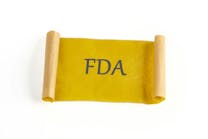Supply Chain rotation critical for hospital administrative fellowships
There are hundreds of administrative fellowship programs across the country, spanning healthcare organizations of all sizes. These programs allow fellows to rotate through administrative departments to gain a comprehensive understanding of organizational, operational, and financial strategies. Spending time with the various departments demonstrates the holistic approach that is needed to successfully run a healthcare organization.
Historically, these fellowships have not included formal exposure to the organization’s supply chain. However, COVID-19 has illustrated the value and complexity of the healthcare supply chain. The pandemic has further demonstrated the significant impact of the Supply Chain department within hospital and healthcare systems, making it a great rotation opportunity for an administrative fellow.
Supply Chain’s strategic importance
The functions of a supply chain department play a critical role in the day-to-day operations of a healthcare organization. At its core, Supply Chain is responsible for delivering products and services on time and at a competitive cost. The processes and systems impact clinical workflow, the supplies procured influence patient care and the associated costs affect the financial position of the organization. All of these operational considerations help an administrative fellow understand the many inputs that derive from the supply chain department.
There are many intricate responsibilities of the Supply Chain department worth exploring during a fellowship rotation. These activities are important in a healthcare organization’s strategic scheme. These distinct functions – sourcing, informatics, and operations – illustrate the interconnected nature of the entire department.
Integrated structure and cross-functional collaboration
Organizational structure and staffing model: The labor required to manage the inputs and outputs of a healthcare system’s supply chain is considerable. An effective organizational structure and staffing model is critical to the success of the department.
Depicting the organizational design at the onset of the rotation allows an administrative fellow to visualize and understand how the various supply chain functions interoperate. At HonorHealth, the Supply Chain department is performed as a shared service by the network of facilities. This means that staff and resources are used flexibly to meet the anticipated and unanticipated needs of daily operations. The HonorHealth Supply Chain Shared Services model is unique in that it incorporates HTM Biomedical Engineering and Facilities Management within its organizational structure. This strategic alignment empowers greater business intelligence and evidence-based value creation. Another benefit of this model is the standardization of best practices from one facility to the next. Ultimately, this model develops employees who are cross-functional and collaborative, a seemingly necessary attribute in today’s unpredictable healthcare market. In an era of the COVID-19 pandemic, this model proves extremely valuable.
From my experience, the most integral aspect of the supply chain department is the collaborative relationship with clinical staff. Whether it’s commodities, clinical preference or physician preference items, the appropriate clinical resources need to be engaged during the sourcing, procuring, and distributing processes. The value analysis team represents the cross-functional committee that compares the clinical value of a product and validates end user acceptance of the vendor and product offering. Pairing the clinical insight with evidence-based value develops a decision-making formulary and implementation framework for supplies, services and equipment.
Contracting and sourcing: Getting exposure to an organization’s contracting and sourcing strategy is a foundational component of a supply chain rotation. Supply expenses can be as high as 30 percent of an organization’s operating budget. With this procurement volume comes hundreds of vendors and thousands of contracts. Executing this effort internally is incredibly involved and expensive. Because of this, many healthcare systems nationwide use group purchasing organizations (GPOs) for some aspect of their purchasing strategy.
For an administrative fellow, understanding the purpose of a GPO and how your organization leverages their services is essential, especially given the financial implications of the relationship. A GPO has the luxury of negotiating vendor terms on behalf of multiple buyers. Leveraging the collective demand results in contract negotiations that have more favorable pricing, length of term and utilization commitments. After the vendor contracts are established and the products have been sourced, the next steps are to define the item attributes and input the product information.
Informatics: The informatics pillar is another fundamental element of the supply chain rotation. At a macro level, controlling the functionality of the enterprise resource planning software and the integration with the other systems is necessary for clinical workflow. Having a team dedicated to analyzing and implementing system updates will help end users utilize the information strategically. At a more granular level, this pillar is responsible for maintaining a robust and accurate item master. Storing relevant product information enables products to be tracked throughout the product life cycle. All of these activities lead to data integrity in the form of an accurate, complete and consistent enterprise resource planning system, which can be leveraged by other supply chain associates.
Operations and logistics: The final pillar of a supply chain rotation is the operations branch. The primary functions of this group are distribution, inventory management and clinical support services. Takeaways for a fellow in this part of the rotation are internal and external logistics strategies, inventory optimization techniques and the defined aspects of the ordering process. In the clinical logistics setting, the operations’ functions close the loop on the purchasing process by defining who does the reordering, at what frequency, what they need to order and how much. Whereas the external logistics of the operations’ activities are an opportunity for healthcare networks to partner with vendors to execute aspects of this function.
There are many benefits of outsourcing the distribution from manufacturers to the hospital, such as quicker delivery times, consolidated shipments, lower space utilization and lower employee utilization to manage manufacturer relationships. Meeting with the primary distributor account manager helps an administrative fellow to further understand the role and requirements of the hospital-distributor relationship.
There are significant costs associated with this department in the form of labor and supplies; these expenses come with cost savings opportunities. HonorHealth has an Operations Excellence and Solutions team that is dedicated to addressing these cost savings opportunities. This team implements initiatives using design thinking, lean six sigma and project management techniques to create value for the clinical and non-clinical staff. A primary example is inventory optimization analysis, which helps departments manage and procure supplies based on historical data, as well as forecasted volume. This careful analysis saves time and money for clinical and administrative staff. Once again, collaborating with the clinical team to create buy-in and sustain comfortability is a key lesson for the fellow.
COVID-19 — a clarion call
As the COVID-19 pandemic has highlighted, the healthcare supply chain is complex and interdependent. For healthcare organizations, a clinically integrated model and strategy is critical when sourcing and distributing supplies. As an administrative fellow, getting exposure to the roles and responsibilities of the various supply chain functions will help build a comprehensive understanding of operations. I want to thank the HonorHealth Supply Chain Shared Services’ associates for accommodating my rotation and teaching me so many valuable lessons. This education is a testament to the culture and leadership of the HonorHealth supply chain organization.

Zach Tudor
Zachary Tudor is an administrative fellow at Phoenix-based HonorHealth, a finalist for the 2020 Supply Chain Department of the Year by Healthcare Purchasing News. Tudor’s professional experience spans medical device marketing to industrial engineering and software consulting. He holds a Bachelor’s in Supply Chain Management from Purdue University and a Master’s in Business Administration from the University of Arizona. His professional mission is to use his cross-functional experience to become an organizational leader that creates value and a culture of collective fulfillment for an organization and its employees





